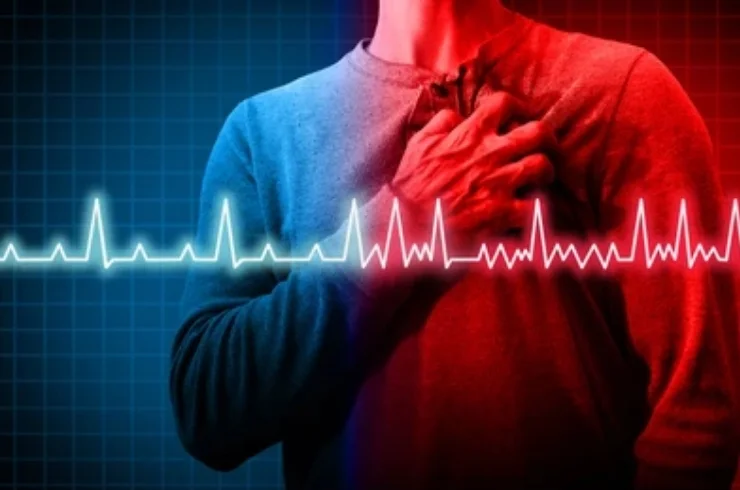Arrhythmias are irregular heartbeats that occur when the electrical signals coordinating your heart’s rhythm don’t work correctly. This can cause the heart to beat too fast (tachycardia), too slow (bradycardia), or with an irregular pattern. While some arrhythmias are harmless, others can lead to serious health complications, such as stroke, heart failure, or sudden cardiac arrest if left untreated.
Types of Arrhythmias
- Tachycardia: A faster-than-normal heart rate.
- Supraventricular Tachycardia (SVT): Abnormal rhythms starting in the upper chambers of the heart.
- Ventricular Tachycardia: Rapid heart rate originating in the lower chambers of the heart.
- Bradycardia: A slower-than-normal heart rate.
- Can occur due to aging, medication side effects, or underlying heart issues.
- Atrial Fibrillation (AFib): A common irregular rhythm in the upper chambers, increasing the risk of blood clots and stroke.
- Ventricular Fibrillation: A life-threatening rhythm that requires immediate medical attention.
- Premature Heartbeats: Extra beats that disrupt the heart’s normal rhythm.
What Causes Arrhythmias?
Arrhythmias can result from several factors, including:
- Heart Conditions: Coronary artery disease, heart attacks, or heart failure.
- Electrolyte Imbalances: Such as low potassium or magnesium levels.
- Lifestyle Factors: Excessive caffeine, alcohol, or smoking.
- Medications: Some drugs can affect heart rhythms.
- Stress and Anxiety: Can trigger irregular rhythms in some individuals.
Symptoms of Arrhythmias
Symptoms may vary depending on the type and severity of the arrhythmia. Common signs include:
- Palpitations: A fluttering or racing feeling in the chest.
- Dizziness or feeling lightheaded.
- Shortness of breath, especially during physical activity.
- Fatigue or weakness.
- Chest pain or discomfort.
- Fainting (Syncope) or near-fainting episodes.
If you experience these symptoms, especially if they are frequent or severe, seek medical attention immediately.
How Are Arrhythmias Diagnosed?
Diagnosing arrhythmias typically involves:
- Electrocardiogram (ECG): A quick test to detect abnormal heart rhythms.
- Holter Monitor: A portable ECG device worn for 24–48 hours to monitor rhythms over time.
- 2D Echo: To assess heart structure and function.
- Stress Test (TMT): Evaluates how the heart responds to exercise.
- Electrophysiology Study (EPS): Maps the heart’s electrical activity to pinpoint irregularities.
Treatment Options for Arrhythmias
Treatment depends on the type and severity of the arrhythmia:
- Lifestyle Changes:
- Reducing caffeine and alcohol intake.
- Managing stress and improving sleep.
- Medications:
- Anti-arrhythmic drugs to regulate heart rhythm.
- Blood thinners to reduce the risk of stroke in cases like AFib.
- Electrical Cardioversion:
- A procedure to reset the heart’s rhythm using controlled electric shocks.
- Ablation Therapy:
- A minimally invasive procedure to destroy small areas of heart tissue causing abnormal signals.
- Pacemaker or ICD:
- A device implanted to regulate heartbeats or prevent life-threatening rhythms.
Why Address Arrhythmias Promptly?
Ignoring arrhythmias can lead to complications like stroke, heart failure, or sudden cardiac arrest. Timely diagnosis and treatment can improve heart health and overall quality of life.
Why Choose Kurnool Cardiac Center for Arrhythmia Care?
At Kurnool Cardiac Center, our expert cardiologist Dr. Nagendra Prasad Thota offers state-of-the-art diagnostics and treatments for arrhythmias. We provide personalized care tailored to your specific condition, helping you regain a healthy and steady heartbeat.
Take charge of your heart health today. Book an appointment and let us help you find the right solution for managing arrhythmias effectively.

